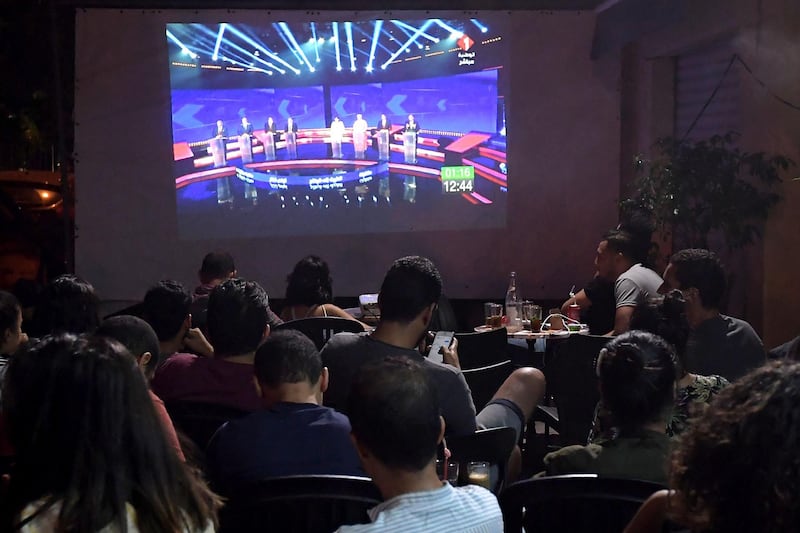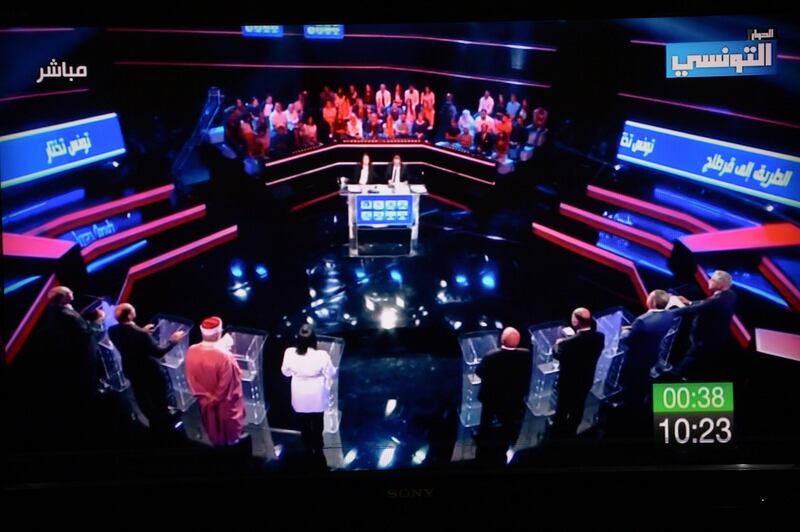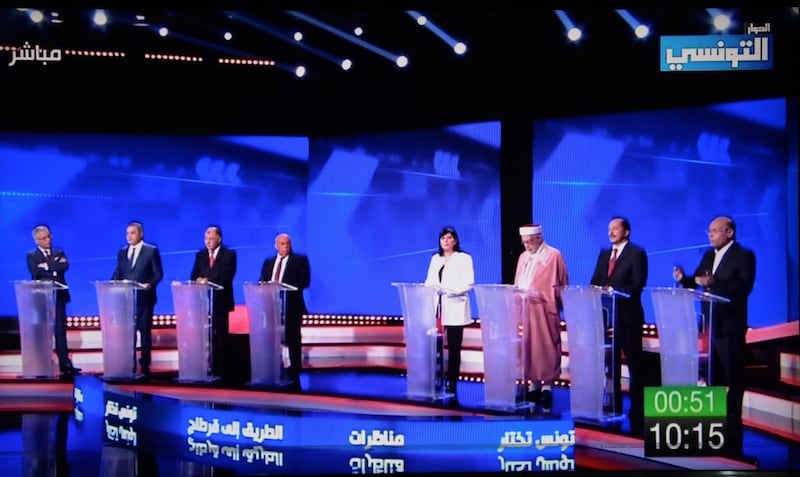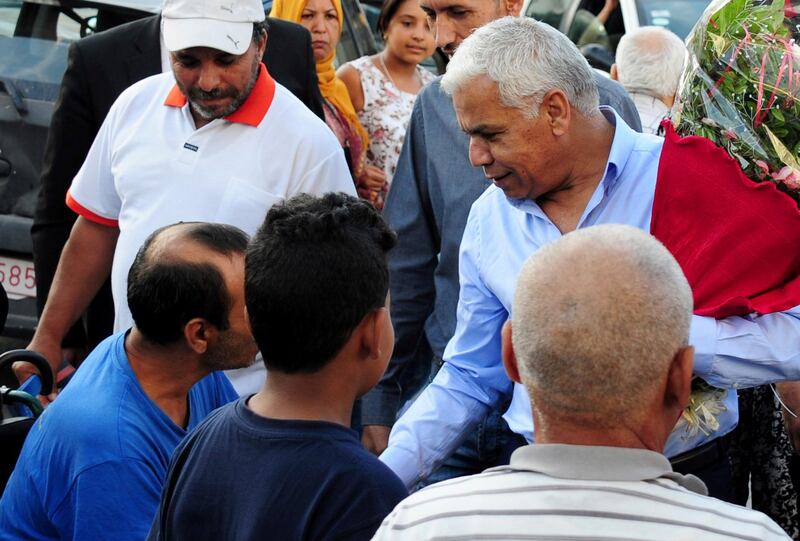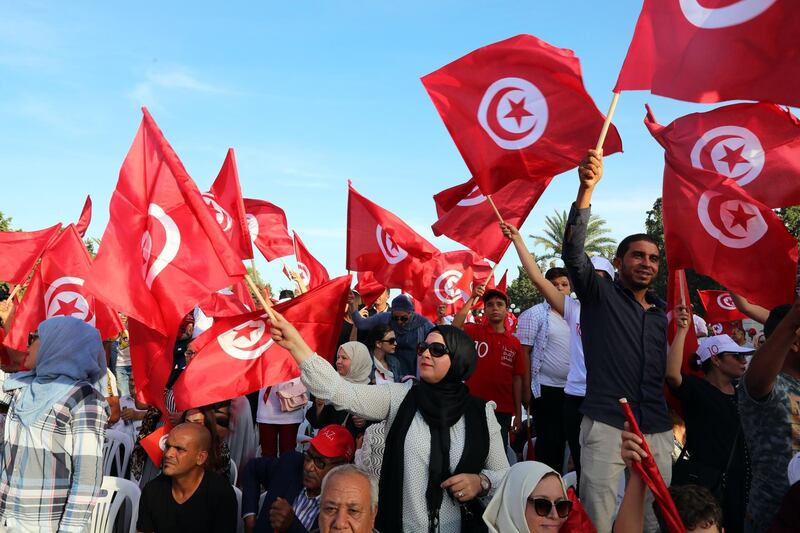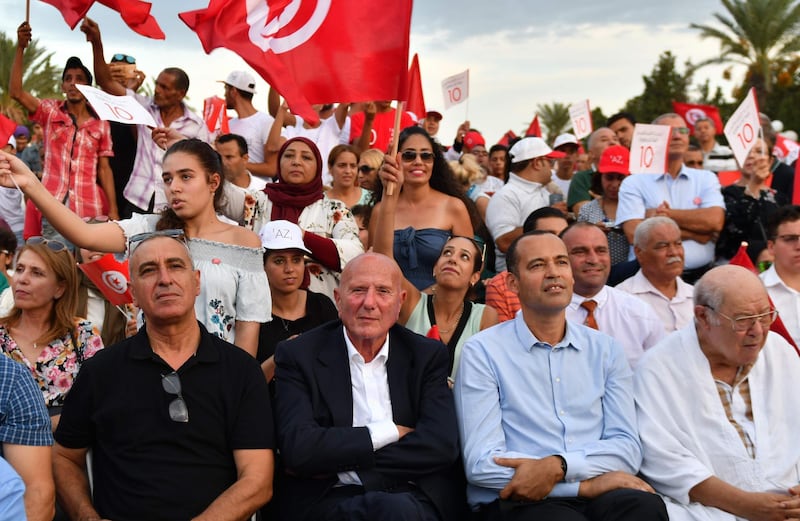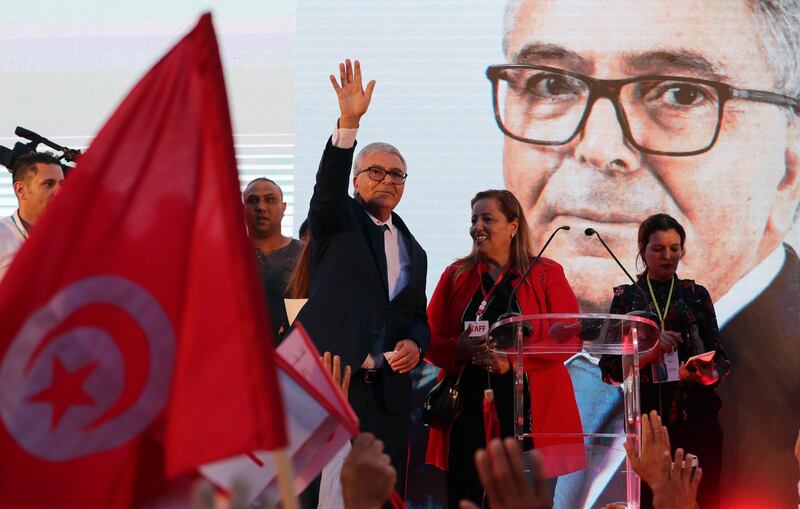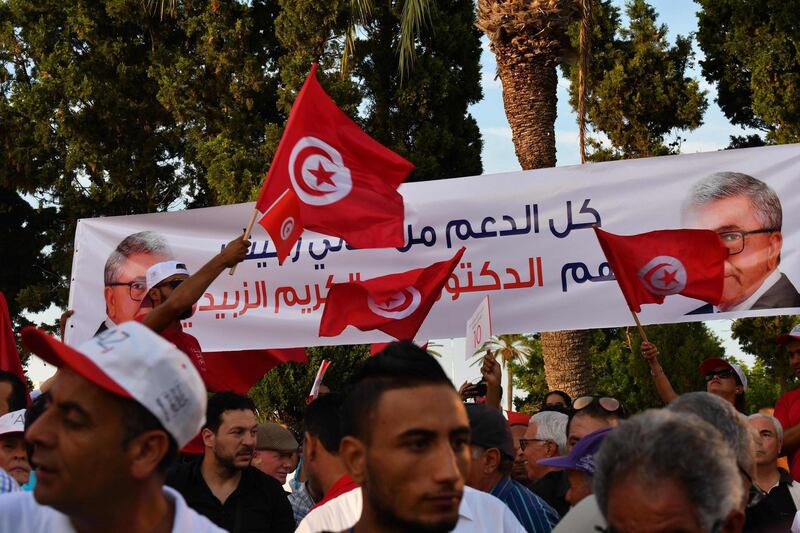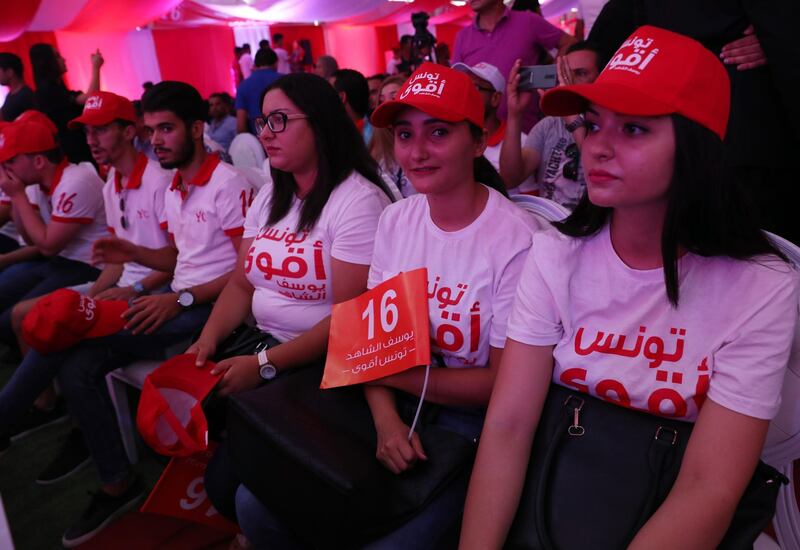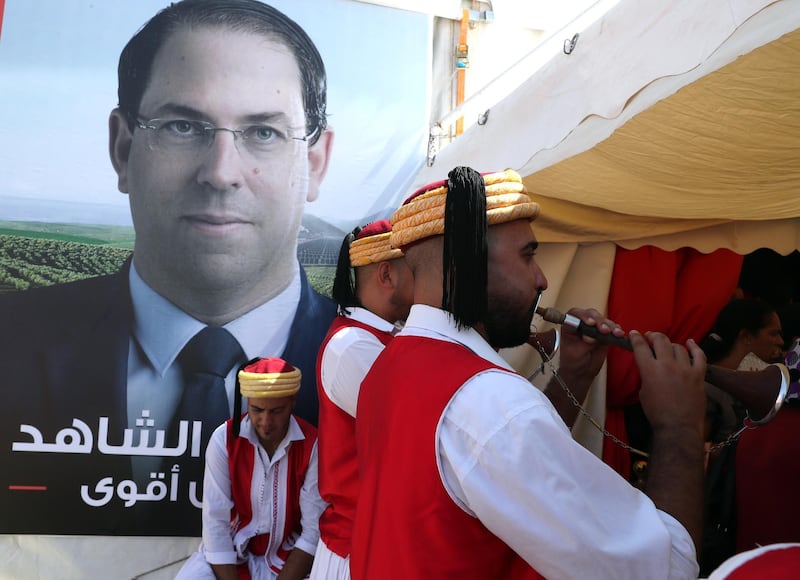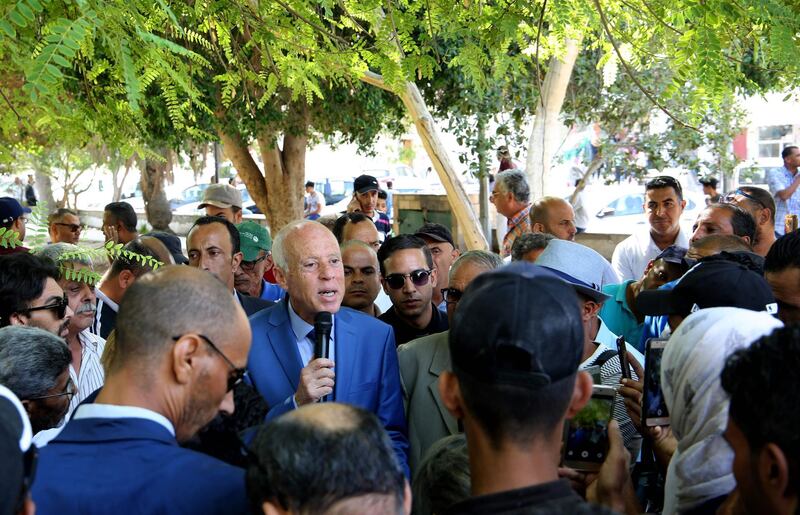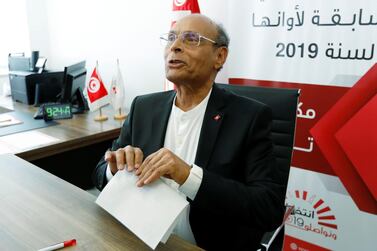Tunisia began three nights of televised debates on Saturday in the run-up to its elections on September 15.
Broadcast simultaneously on nearly all television channels, the debate was an event on a scale unparalleled in the country’s history.
Cafes in the capital Tunis were bursting at the seams as crowds gathered to watch.
Eight of the country’s 26 presidential hopefuls took part in the debate on Saturday, with the others due to appear over the next two days.
Notably absent was TV boss and front-runner Nabil Karoui, who is in prison after his arrest last month on charges of tax evasion and money laundering.
Candidates were given 90 seconds to answer questions that had been selected by a committee, but with the answers going unchallenged, details of plans to address crucial issues were thin on the ground.
National security, the country’s general reorientation towards Sub-Saharan Africa and terrorism all featured prominently, but it was the economy that took centre stage.
Unemployment is entrenched at 15.3 per cent – higher than in 2010, the year before Tunisia’s revolution.
Every month, the cost of living rises while the currency, the Tunisian dinar, struggles to keep pace.
“Most of the [candidates’] promises are pretty vague,” Sarah Yerkes, a fellow at the Carnegie Middle East programme, told The National.
“Many of the parties seem to be putting forth a sort of generic platform of improving the economy and reaching out to youth, but few have clear ideas how to do so.”
In a debate that included Abdelfattah Mourou, the candidate for the moderate Islamist Ennahda party and former president Moncef Marzouki, both in their 70s, it also became apparent that the new format was likely to work more favourably for the younger, more media-savvy candidates.
Public focus centred on the detention of Mr Karoui, whose challenge for the presidency remains significant despite his absence from the stage.
“I think it is very likely Nabil Karoui will see the first round of voting from prison,” Ms Yerkes said. “However, should he do very well and make it to the second round, his political rivals may decide it is not working to keep him in jail and release him.”
The charges against Mr Karoui and his brother, Ghazi, date from 2016 and were originally brought by the Tunisian anti-corruption watchdog IWatch. Mr Karoui’s supporters had hoped their candidate would be released on Monday. But the appeal was denied, prompting a flurry of outrage from members of his Heart of Tunisia party.
Mr Karoui was leading in the polls prior to their closure in July before campaigning.
He was already positioned as an outspoken, anti-establishment candidate before his arrest, and his charity work in deprived parts of the country has secured him a loyal base of devotees.
“So far, the idea of him as a political prisoner seems to be working,” Ms Yerkes said.
“He isn’t being painted as a corrupt politician so much as a wronged man of the people who is so threatening they have to put him in jail to contain him. This seems to be backfiring on Karoui’s rivals.”
